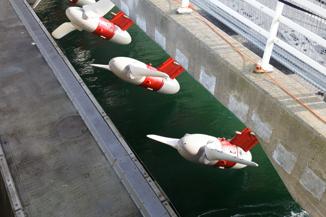This article was originally published in The Energy Industry Times on 4 March 2023.
In December 2022, trade bodies representing the UK energy sector wrote to the Department for Business, Energy and Industrial Strategy raising fundamental concerns that the UK could fail to meet some of its net-zero goals unless it can address constraints with the electricity network and speed up grid connections for renewable energy sources and grid-scale battery storage. Reports have since emerged of 13-year wait times to secure a grid connection…
Importance of solar, wind, battery storage
We are operating in a unique time where the three pillars of the energy trilemma are simultaneously critical. Consequently there is sharp focus on energy ‘green-ness’, affordability and security of supply.
Layered on top of this ever increasing focus is the context that the future energy system is going to look markedly different from its current form reflecting significantly increasing demand, a changing of the nature of such demand (and its patterns), evolving energy needs and the establishment of new technologies.
The importance of energy generated by solar and wind in the UK is widely known with each taking key roles in various pieces of Governmental policy initiatives in recent years.
In order to fully harness the potential of such renewable energy, reflecting:
- the sun does not continuously shine nor does the wind continually blow, creating less predictable generation and peaks and troughs not associated with fossil-fuel generation; and
- the limitations of the physical grid infrastructure,
- there is a critical role for battery storage installations. Such installations store electricity in containers and enable the deferral of that consumption to a later time. In short they provide flexibility and remove the ‘use-it-or-lose-it’ issue.
Constraints - infrastructure and “queue management”
Broadly the constraints can be attributed to issues with grid infrastructure (the longer term issue) and, somewhat ironically in a UK context, an inefficiency with ‘managing the connectivity queue’ (the shorter term issue).
Taking each in term:
- Grid infrastructure – Ageing grid infrastructure, originally designed for a small number of large fossil-fuel generators, is struggling to shift to a more dispersed range of suppliers and cope with the ever increasing and shifting demands with investment and efficient design/remodelling needed.
- Queue management – The current connections process, originally formulated to deal with connecting a small number of fossil fuel plants annually, has not evolved with the changes in the energy sector. Consequently, grid connectivity continues to be a core challenge plaguing the energy networks, a point openly acknowledged by National Grid – as Electricity System Operator – in its recent GB Connections Reform.
In simple terms the current process is unlikely to facilitate connection of sufficient renewable generation quickly or efficiently enough to meet the UK’s targets. But why?
- Application increase – There has been a major increase in connection applications over the last 5 years, particularly so in 2022/2023, where such growth is exceeding future energy scenario projections (with a large proportion of that activity driven by battery energy storage). Without change this problem is expected to compound.
- Transmission Entry Capacity registration process – The Transmission Entry Capacity registration process is currently mandated to operate on a one-size-fits-all and first-come-first-served basis. Effectively this means the Electricity System Operator cannot seek to prioritise applications nor distinguish those with concrete proposals against those which are much more speculative in nature.
- Speculative applications – the potential significant value attributed to land that has the benefit of booked grid capacity has led to an increasing number of speculative applications added to queue congestion.
- Nature of applications – The complexity of the applications made, coupled with the underpinning regulatory regime incentivising the networks to focus on cost minimisation over net-zero impact, has resulted in both: a significant number of applications either falling out of, or otherwise repeating, the application process; and an ever lengthening of the number of days it takes to make a connection offer.
Impact
Such issues clearly create a multifaceted concern for the energy sector including:
Investor confidence
The ability to efficiently secure a grid connection will form a key component of an ‘investibility’ case. If the perceived issues are not addressed in short order there is the concern, already voiced by stakeholders, that investment strategies in the UK would be reconsidered impacting renewable energy projects.
Innovation impact
Small renewable project developers and/or clean technology innovators who often need external investment to prompt development and scale-up of innovative projects and technologies could suffer. Extensive delays in implementation capability could render raise serious questions around commercial viability.
Impact on competitive marketplace
The potential impact on the mix of companies operating in this sphere is significant. On a localised level, delays are likely to have disproportionate impacts on smaller developers. As such the short-term challenges with grid connection could have a long-term impact on the competitiveness of the renewables market.
Net Zero progress
Unless the network constraints are quickly addressed there are real risks on the UK’s ability to implement its net zero strategy at the desired pace. It is also clearly a real practical issue for stakeholders who are driving the energy transition through a desire to deploy green megawatts quickly and efficiently.
Put simply, if the UK wants to attain its net zero power grid by 2035, renewable projects and relevant customers alike must be able to connect efficiently.
Positively, there is a well advanced connections reform consultation underway aimed at more effectively queue-management, an acceptance of the issues and a commitment to address them by the Electricity System Operator and a widespread stakeholder commitment, desire, skillset and investment potential to address the network/connectivity constraints but this also likely needs an acceptance of the urgency and priority of these issues at governmental level.










































